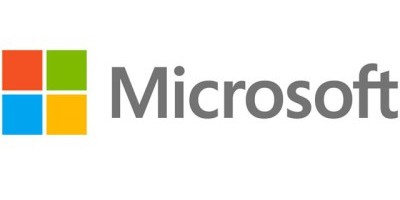Microsoft is Winning

Microsoft is winning- taking some bold moves and surprises us with its ability to adjust and react to customer and industry demands
Microsoft is taking some bold moves and surprises us with its ability to adjust and react to customer and industry demands.
Not many technology companies have been around for as long as Microsoft, even less of these “veterans” are still innovating and making headlines with their bold moves.
Microsoft Started by Selling Basic interpreters for Altair 8800 in 1972 and moved to the Operating System world where it dominated the private computer OS market. Jumping a few decades forward Microsoft got criticism for locking in users and developers was coupled with some bad acquisitions and product releases. Microsoft suffered from very bad review on its Windows 8 (One of the reviews). Some believed that this is it, and that the Microsoft era is over, they are moving to the loosing group. Luckily for Microsoft not only that they have the financial resources to try and fix whatever is wrong ( lawsuits, failed products, acquisitions, you name it) but they also have the human capital to help make the change.
I believe that Microsoft move to the winning side is partly because of the new CEO Satya Nadella, who was appointed on February 4th 2014. It seems that Satya brings a wind of positive change to the organization, preaching the “One Microsoft” mantra and making the organization to execute against this mission. Here is his first Interview where he starts demonstrating some of the qualities that will help Microsoft transform. He is making himself accessible, sends a personalized massage to the world and shows his openness for learning new things.
Microsoft is winning because it creates value for its partners developers and customers. Part of the value is it’s history and solid base within the tech world but other, more important part is its innovation and flexibility towards meeting customer demands and needs.
Microsoft creates Value for users through its hardware and software. The Microsoft willingness to partner with competitors allows it to create a bigger impact and value for the end users and developers. The Changes Satya made provided developers with tools to write an app and then convert it to all Windows versions and to iOS and Android.
Windows 10 reviews are positive, complimenting Microsoft for listening to its users and going the extra mile to meet their needs while innovating and presenting new features. The created through Windows 10 value isn’t combined with immediate monetary value capture as Microsoft is offering Window 10 free of charge for the first time ever.
However I would claim the value is still captured by restoring it’s image in the eyes of Microsoft clients, partners, developers and the entire world.
Moreover, by providing Windows 10 for free, Microsoft creates an even stronger network effect for it’s operating system and other offerings.
Organization at the magnitude of Microsoft cannot succeed in every aspect all the time, the recent layoffs in Nokia demonstrate that clearly, but Microsoft current outlook still remain positive, with good results in its core businesses and positive public perception. I classify Microsoft as a winner and predict some more wins for Microsoft in the future.



I read an interesting article today about how Microsoft plans to make money while “giving away” Windows. Basically, they’re using guerrilla tactics to pull in users through a free product and locking them into Microsoft search tools, like Bing and Cortana, generating more queries and ad revenue. I’m not convinced this is a winning strategy. Windows software is where they create value, and sacrificing it to compete in Google’s world of search is dangerous.
http://www.zdnet.com/article/how-bing-figures-into-microsofts-future-money-making-plans/
I think Microsoft faces indeed some very interesting strategic challenges. The last years have shown that they are not able to compete with Apple and Google on the smartphone market (in terms of both hardware and software). However, I agree with your statement that Microsoft has made some important adjustments. They now seem to be more focused on their core capabilities: software development and, in particular, productivity apps. This is well underlined by the appearance of a Microsoft representative presenting their Office apps for iOS at the Apple keynote last week. Although Microsoft lost the smartphone market, they have the chance to win different other markets, build new platforms (as you mentioned it) or sell advanced software to their customers. This WIRED-article from last week predicts a huge potential for their virtual reality technology, too:
http://www.wired.com/2015/09/microsoft-kisses-tim-cook-front-millions/
I don’t know a ton about Microsoft, but from a distance I’d agree with you that they’re on a winning trajectory with their latest releases in both hardware and software. Both the Surface tablet series and Windows 10 have knocked it out of the park in terms of user experience from what I’ve heard and seen. I’m fairly confident as well in Microsoft’s ability to translate an increasingly loyal user base into monetization – though agree that search probably isn’t the optimal way to do this. What I’d be more interested in is how Microsoft’s other plays in hardware and software (i.e. XBox and the Office Suite) figure into this equation or ecosystem – if at all.
I agree that Microsoft is winning, particularly in the enterprise market (from SharePoint to hardware) and XBox. I completely agree that with Windows 10 they seem to be driving network effects. My only concern with labeling Microsoft a “winner” is their inability to succeed in the smartphone market, since smartphones are driving so much of the consumer face time. I’m curious to see how Microsoft will continue to develop apps and compete in the smartphone space despite their failure to provide the hardware/software backbone. How do they build on their Windows 10 network effects without a smartphone?